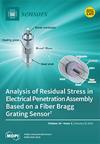使用 CyberGuard 框架在边缘和雾计算中进行信任管理和资源优化
IF 3.4
3区 综合性期刊
Q2 CHEMISTRY, ANALYTICAL
引用次数: 0
摘要
分散式应用的兴起推动了边缘计算和雾计算在现代 IT 基础架构中日益重要的地位。然而,由于设备能力和动态网络条件各不相同,在这些框架内进行资源分配极具挑战性。传统方法通常会导致资源利用率低下和进展缓慢。本研究提出了一种新颖的策略,通过将机器学习与区块链整合,实现可靠的信任管理,从而增强边缘和雾计算中的资源分配。我们提出的框架名为 "CyberGuard",它利用区块链固有的不变性和去中心化特性,建立了一个可信、透明的网络,用于监控和验证边缘与雾计算交易。CyberGuard 将 Trust2Vec 模型与 SVM、KNN 和随机森林等传统机器学习模型相结合,创建了一种用于评估信任和安全风险的强大机制。通过详细的优化和案例研究,CyberGuard 在实际应用场景中显著提高了资源分配效率和整体系统性能。我们的研究结果凸显了 CyberGuard 的有效性,其显著的准确率、精确度、召回率和 F1 分数高达 98.18%,展示了我们的综合方法在边缘和雾计算环境中的变革潜力。本文章由计算机程序翻译,如有差异,请以英文原文为准。
Trust Management and Resource Optimization in Edge and Fog Computing Using the CyberGuard Framework
The growing importance of edge and fog computing in the modern IT infrastructure is driven by the rise of decentralized applications. However, resource allocation within these frameworks is challenging due to varying device capabilities and dynamic network conditions. Conventional approaches often result in poor resource use and slowed advancements. This study presents a novel strategy for enhancing resource allocation in edge and fog computing by integrating machine learning with the blockchain for reliable trust management. Our proposed framework, called CyberGuard, leverages the blockchain’s inherent immutability and decentralization to establish a trustworthy and transparent network for monitoring and verifying edge and fog computing transactions. CyberGuard combines the Trust2Vec model with conventional machine-learning models like SVM, KNN, and random forests, creating a robust mechanism for assessing trust and security risks. Through detailed optimization and case studies, CyberGuard demonstrates significant improvements in resource allocation efficiency and overall system performance in real-world scenarios. Our results highlight CyberGuard’s effectiveness, evidenced by a remarkable accuracy, precision, recall, and F1-score of 98.18%, showcasing the transformative potential of our comprehensive approach in edge and fog computing environments.
求助全文
通过发布文献求助,成功后即可免费获取论文全文。
去求助
来源期刊

Sensors
工程技术-电化学
CiteScore
7.30
自引率
12.80%
发文量
8430
审稿时长
1.7 months
期刊介绍:
Sensors (ISSN 1424-8220) provides an advanced forum for the science and technology of sensors and biosensors. It publishes reviews (including comprehensive reviews on the complete sensors products), regular research papers and short notes. Our aim is to encourage scientists to publish their experimental and theoretical results in as much detail as possible. There is no restriction on the length of the papers. The full experimental details must be provided so that the results can be reproduced.
 求助内容:
求助内容: 应助结果提醒方式:
应助结果提醒方式:


